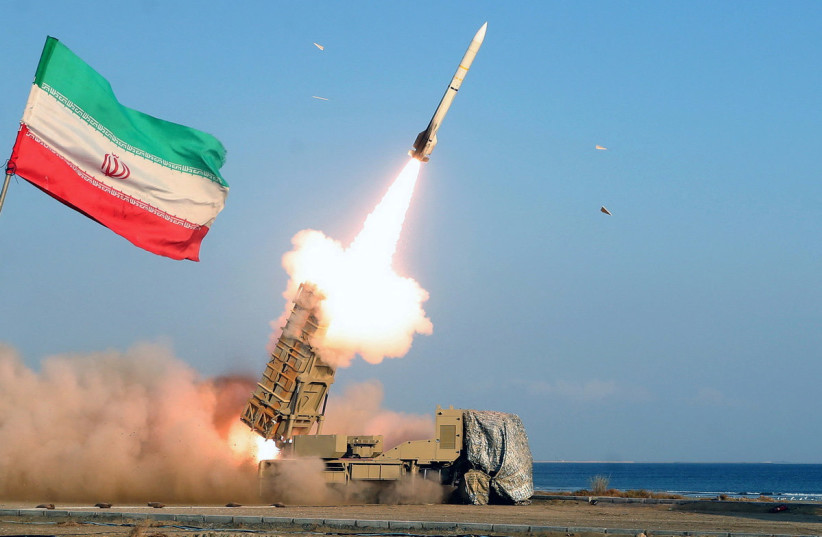A report leaked by the International Atomic Energy Agency (IAEA) on Tuesday revealed that Iran has again sped up – or tripled – its pace of 60%-uranium enrichment at least as of late November. This reality places before Israel and the West a challenge more ominous than anything out of Gaza or Lebanon.
The threat is no longer “just” one nuclear weapon, but rather a potential arsenal of them.
At its current rate, Iran can roughly produce enough uranium for a new nuclear weapon every four and half months – if it decides to break out over the nuclear threshold.
The threat may not be very imminent, though. For Hamas, it was a detrimental mistake to carry out the October 7 attack, since the IDF’s response has either ended the group’s 16-year rule or at the very least set it back five to 10 years.
Mutually assured destruction
In the same vein, for Iran, it would make no sense to launch nuclear weapons against Israel, given that the Jewish state reportedly retains 80 to 200 nuclear weapons, including the “triad” of land, air, and sea weapons.

That means no matter how “successful” a nuclear attack by Tehran could be, the ayatollahs would face a much greater “second strike” by Jerusalem.
But what October 7 reminded Israelis is that in the Middle East, especially when rife with fanatical religious messianism, fateful decisions are not always made by rational Western measurements.
It turns out that Hamas leader Yahya Sinwar was either so confident in estimating Israel’s weakness, or was so unsatisfied with his 16-year rule of Gaza in the shadow of a Zionist entity, that he was willing to risk everything just for the chance to flip the narrative.
We may never fully know what Sinwar’s goals were, but any Western rational thinker would have seen that the gravity of the threat of a massive Israeli counter-invasion outweighed whatever he could have hoped to achieve.
But Sinwar is not Western, and neither are the ayatollahs.
Perhaps one good development is that the Islamic Republic may be less likely to gamble on Israeli weakness, witnessing Sinwar’s error. But if its leaders are less risk-averse than we think, a nuclear arsenal versus one nuclear weapon is a very big deal.
Top Israeli officials already had said by the first half of this year that Iran possessed sufficient enriched uranium at the 60% and 20% levels that, if weaponized, could give it about half a dozen nuclear weapons. Enough uranium for an additional bomb every four and a half months is a handy recipe for a quick potential arsenal.
The debate rages as to whether weaponization can be accomplished by Iran in six months or two years. The longer that IAEA inspectors are out of the country – Iran kicked out some of the most important inspectors in September – the more likely that gap period for weaponization could drop without anyone knowing.
As long as Tehran was working on developing one or two nuclear weapons, even a Middle East-style version of rationality might have worried that trying to attack Israel with nuclear weapons made no sense, because if the one or two failed, they might achieve nothing and face a devastating Israeli response.
If the ayatollahs’ new decision about nuclear breakout is not about whether to try for one or two weapons, but rather for an entire arsenal, then attacks against Israel could be more reliable and credible for Iran.
An arsenal of nuclear weapons might also discourage Israel and the US from any preemptive strike because it would be harder to eliminate all the weapons, and missing even one could be a disaster.
This is exactly the dilemma the world now faces with North Korea, which is estimated to have dozens of nuclear weapons.
That is nothing compared with the thousands of nuclear weapons the US has, but it is enough of a deterrent that Pyongyang has been, for years, getting away with things that other countries could never dream of getting away with.
Imagine if that power was in the hands of the more religiously fanatical ayatollahs.
That is not to say a single nuclear weapon in Iran’s hands was not a scary prospect, but a potential arsenal, especially after October 7, alters the entire picture.
